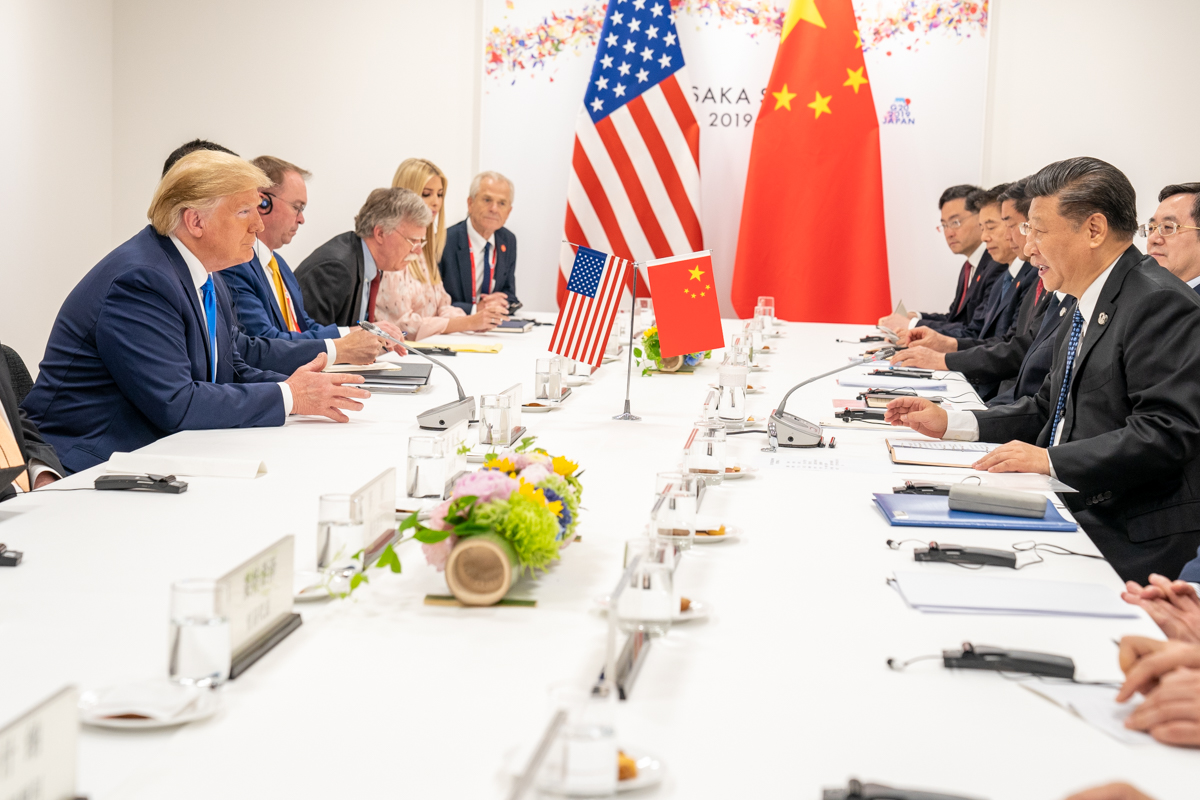 Official White House Photo by Shealah Craighead / Public Domain
Official White House Photo by Shealah Craighead / Public Domain
Avoiding Thucydides’ Trap: Climate Cooperation
Conflict is inevitable between a prevailing and rising power, according to ancient Greek historian Thucydides. Today the US is the prevailing power and China the rising power. How the US manages China’s rise will have far-reaching impacts. There will be times of conflict but also opportunities for cooperation. One such area of cooperation should be climate change, and the US and China must not let this opportunity for cooperation pass by.
The relationship between the US and China is tenuous. A few examples:
- The US views both Taiwan and Hong Kong as autonomous of China, a position that puts the US in conflict with Beijing.
- In 2013, the US brought a case against China for dumping cheap solar panels in the US market, undercutting US solar panel producers. The case was tried at the World Trade Organization, and the court decided in favor of the US.
- The US has repeatedly expressed dissent towards China’s declaration of the ‘Nine-Dash-Line‘ in the South China Sea, as it violates the UN Convention on the Law of the Sea and threatens the sovereignty of US allies in the region.
- More recently, the Trump Administration’s tariffs ignited a trade war with China, despite the vast entanglement of our economies. While the US and China signed a trade deal in early 2020, China has not yet followed through on all of its commitments outlined in the deal.
While the US must demonstrate strategic resolve in the face of Chinese aggression and violation of treaties, international laws and norms, they must also find opportunities to reassure China. Climate change is such an opportunity.
The US and China are the world’s top carbon emitters. Xi Jinping recently announced China intends to reach net zero carbon emissions by 2060. Meanwhile, President Trump followed through on his campaign promises to withdraw the US from the 2015 Paris Climate Agreement and roll back significant environmental protections. Without a concerted effort by Beijing and Washington, the global community is unlikely to keep temperatures from rising less than 1.5 degrees Celsius as the United Nations Intergovernmental Panel on Climate Change (IPCC) says is necessary to prevent crossing the point of no return.
The idea of cooperation between the US and China on climate change is not as far-fetched as it might sound to some. In 2014, the US and China signed a bilateral climate agreement to reduce carbon emissions. In 2015, both the US and China signed the historic Paris Agreement, despite reservations from China. While the announcement of US withdrawal from this agreement was a huge blow to climate efforts, the initial achievement shows that cooperation with China is still possible.
Cooperation between the US and China, the two largest emitters, sends a powerful signal to the rest of the world. There are many countries making difficult economic and climate policy decisions, especially in the developing world. During the Paris Agreement ratification process, India, another of the world’s largest emitters, was hesitant to join due to the US reversal on the Kyoto Protocol. With a similar reversal on the Paris Agreement, India faces the decision: how to proceed with their own climate policies?
The US’ withdrawal from the Paris Agreement sends the message that it is okay to renege on climate commitments, at a time when the world needs collective action to fight and prevent reaching a dangerous climate tipping point. Cooperation with China is also an opportunity for the US to regain some of the international influence it lost with the announcement of withdrawal from the Paris Agreement.
While the US’ relationship with China is a tenuous one, there is room for cooperation. Fighting climate change demands collective action; no one country can go it alone. As the two largest emitters, the US and China are presented with an opportunity to work together to combat climate change. Doing so will, hopefully, prevent us from falling into Thucydides’ trap.





